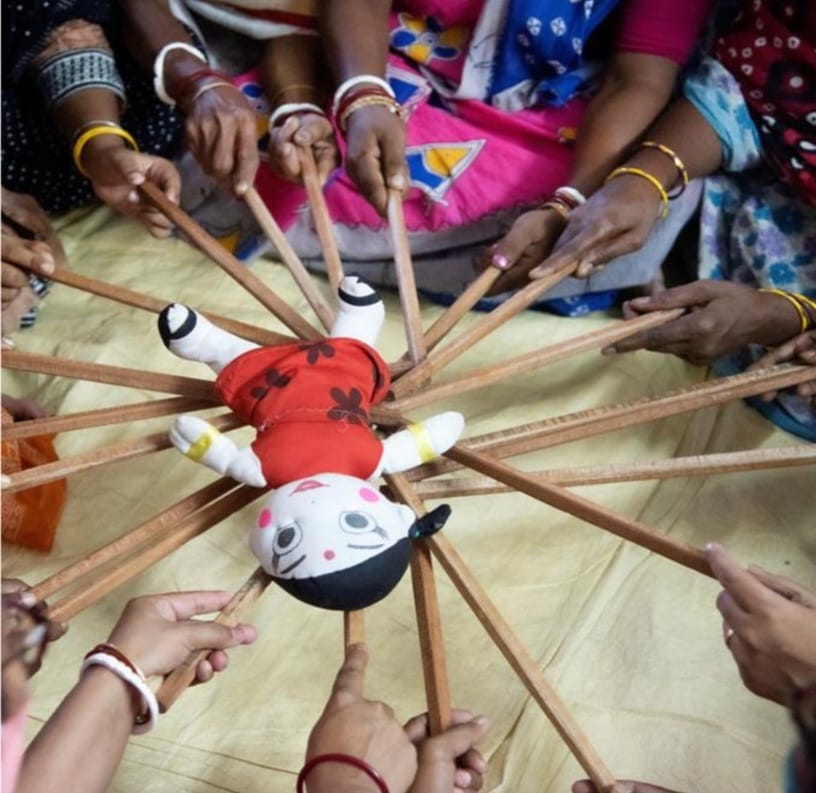Games people play: An innovative method for enhancing child health behaviors
Behavior change requires interaction, innovation, and iteration to create a supportive social environment for engaging communities to bring about positive health outcomes. We used The CINI method© – a multisectoral human rights-based approach for behavior change that draws on human-centered design along with the socio-ecological model. With this unique combination of approaches, our team co-created community games to drive sustainable behavior change to facilitate improvements in child health. We built on the lessons grounded in The CINI Method© to design a novel approach to engage stakeholders in co-creating community games to address child health. Community games aimed to promote change in knowledge, attitudes, and behaviors and encourage participants to be reflective about their roles and responsibilities towards ensuring healthy children. These games exposed participants to real-life situations in an engaging, yet entertaining manner. To augment our learning, we conducted informal post-game interviews to capture participants’ experiences and reflections of each game. We outline the methodology of developing community games as a child-centered approach grounded in the principles of social and behavior change communication.
Objectives:
With an objective to drive sustainable behavior change at the multisectoral level to facilitate improvements in child health, we made a short film capturing a novel approach to engage stakeholders in co-creating community games to address child health. Accompanying the short film is a write-up about the methodology behind co-creating the games with a multisectoral human rights-based approach for behavior change that draws on human-centered design along with the socio-ecological model.
Behaviors being addressed:
- Improving the role and accountability of multisectoral stakeholders in creating a safety net to improve maternal health to support healthy birth outcomes
- Improving the uptake of childhood immunization
- Reducing early marriage and teenage pregnancy
Current behaviors:
- Multisectoral key stakeholders don’t feel and act responsible towards improving maternal health to support healthy birth outcome
- Low uptake of childhood immunization
- Early marriage and teenage pregnancy
Source: Johns Hopkins Maternal and Child Health Center India
Date of Publication: October 12, 2023

